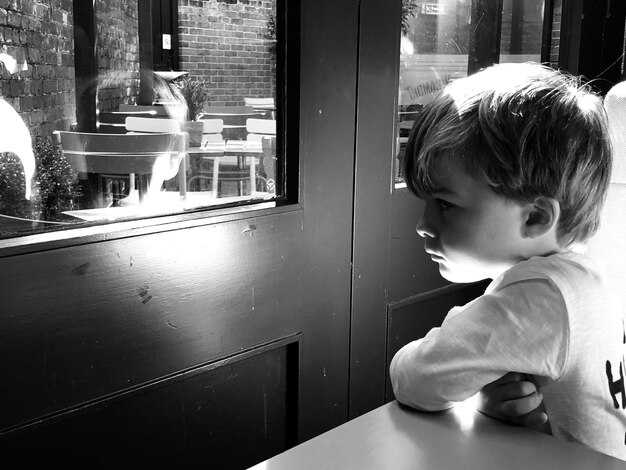Okay — how can you tell if someone is a narcissist or simply an avoidantly attached person, and what should you do if you’re in a relationship with either type? That’s what this piece will unpack, because in reality distinguishing them can be confusing, yet there are important signs that clarify things. Like most human traits, these patterns exist on a continuum: many people show narcissistic tendencies at times, but not everyone is a true narcissist. Likewise, people may move between anxious or avoidant attachment depending on how their partner behaves, but not everyone is chronically avoidant. Personally, labeling people harshly isn’t helpful — calling your partner “a narcissist” or “an avoidant” rarely solves anything, and there are usually more compassionate, honest ways to address problems. What matters most is observing conduct: is this relationship working for you? Are they reliable? Do their words align with their actions? Do they respect your feelings, needs, hopes and dreams? If the answer is “no,” the label doesn’t matter — they’re simply not a good match. How can you build closeness with someone who lacks basic kindness, consideration, trust and desire for intimacy? You can’t — and we’ll explore that more shortly. The aim here is to explain the practical differences between narcissism and avoidance, since culture often lumps them together when they’re actually not the same.
First, let’s look at the similarities. Both avoidant people and narcissists tend to be more self-focused than other-centered, at least after the honeymoon phase. Both are emotionally unavailable to a deeper level because they often lack self-awareness and emotional maturity. Both avoidants and narcissists handle conflict poorly: they invalidate, dismiss, get defensive, interpret feedback as attack, or shift blame onto their partner. Criticism — even constructive — feels threatening to both, and both can retreat into stonewalling, withdrawal or the silent treatment. They frequently minimize emotions, treating their own feelings as unimportant, which leads to limited respect or empathy for yours. That’s why you hear lines like “you’re overreacting,” “you’re too needy,” or “your feelings aren’t my problem.” Apologies and accountability are rare because admitting fault is perceived as weakness. Both can struggle with trust, fragile self-esteem, shame and feelings of unworthiness, just expressed differently. Conversations often stay superficial, and the early closeness you felt can evaporate — whether through fading interest or inability to prioritize intimacy — leaving you confused and feeling like the only one carrying the relationship. If you stopped trying, the whole thing would likely collapse. That’s painful to recognize, and it’s tempting to demonize both types. But this discussion aims to hold empathy alongside validation for your hurt: while the behavior is unacceptable, labeling alone won’t help you get what you need going forward.
It’s also worth noting that anxious partners have many of their own challenges and can look similar to avoidant partners. Both anxious and avoidant people can fear vulnerability and intimacy; their fears are complementary and often clash. Anxious people fear abandonment and may act destructively in attempts to secure closeness; avoidant people fear rejection and losing autonomy, and often self-sabotage to protect themselves. They are two sides of the same coin: one person’s boundaries are porous while the other’s are rigid, one relies on others to feel safe, the other relies on themselves. Neither typically knows how to manage these dynamics healthily. The differences between a true narcissist and an avoidant attachment style are especially important: the key distinction is intent. A genuine narcissist — not someone who occasionally shows narcissistic traits — often seeks power and control in relationships, believes themselves superior, feels entitled to admiration and attention, and deliberately shames, belittles or manipulates their partner. They present one persona publicly and another at home, and many victims know others wouldn’t believe the private abuse.
By contrast, avoidant partners are not usually intentionally trying to control or dismantle you. That doesn’t excuse harmful behavior — avoidant actions can be hurtful and immature — but their driving force is fear, not deliberate domination. Early in a relationship an avoidant can genuinely enjoy connection and briefly lower their guard, then pull away once bonds deepen because vulnerability triggers alarm. Their nervous system warns that emotional openness risks being hurt, and since they learned to protect themselves by staying independent, they retreat. They may claim the relationship became “boring” or that the partner was “too clingy,” then repeat the pattern with someone else. That kind of withdrawal is a defense mechanism, not a calculated campaign to control you, whereas a narcissist often love-bombs strategically: lavish attention, gifts and flattery, learn your insecurities and gather material to exploit later once you feel bonded.
There are also differences in how conflict is used. Avoidant people tend to avoid confrontation; narcissists often escalate it. Narcissists may provoke emotional reactivity so they can tear you down and gaslight you into seeming like the aggressor, always positioning themselves as the victim. Avoidants are less likely to belittle consistently — their dismissiveness and invalidation usually surface in conflict or when they feel overwhelmed, not as a methodical campaign to erode your self-worth. Similarly, both can be hot-and-cold or disappear, but motives differ: the avoidant needs space to feel safe; the narcissist weaponizes distance to confuse and control. An anxious person who gets broken up with by a narcissist often experiences a painful pull back into the relationship when the narcissist “accepts” them again — being chosen feels intoxicating even if the fit is wrong. Avoidants typically do not crave center-stage attention in the same way; when they appear indifferent it’s often because shame or a sense of inadequacy makes them minimize your pain — pretending it doesn’t exist is their coping mechanism. Avoidance pushes people away out of fear of rejection, not from deliberate manipulation.
Both styles narrow their emotional focus when in survival mode: pain reduces perspective and makes people prioritize their own needs. Narcissists, however, are more likely to isolate you from friends and family to increase dependence; avoidants generally don’t try to cut you off from supports outside the relationship and often welcome that independence. The avoidant’s shutdowns, stonewalling and emotional dysregulation are still harmful, but narcissistic silent treatments are often a method of punishment and domination. Narcissists view partners as sources of admiration, pleasure or attention; avoidants often deny or minimize their own needs and resist being dependent on someone else. In short, neither partner is likely to provide abundant empathy or emotional awareness: avoidants have typically turned that part of themselves off because it wasn’t adaptive in childhood, and many never relearn it.
All of this could be expanded on, and you probably have more examples to add, but one central question remains: does the distinction matter? The bottom line is this — whether someone is avoidant or narcissistic, a healthy relationship is unlikely if the patterns above dominate. Trust, mutual respect, empathy, kindness, and consistent care are the foundations of a relationship; when a partner repeatedly undermines those, the connection cannot thrive. You are not responsible for changing another person. If you were hoping to study your partner’s mind so you could “inception” them into treating you right, that’s not the way healing happens. You deserve someone willing to do the inner work to make the partnership work. One person cannot single-handedly build emotional safety; it takes two. The real work of relationships is about kindness, consideration, mutual respect, affection, honesty, vulnerability, emotional safety, learning each other’s needs, and prioritizing one another in the ways that feel most loving. Labels like “avoidant” or “narcissist” are secondary to the practical question: is this person committed to humility, honest self-reflection, admitting mistakes, respecting your boundaries, and learning to repair harm? Do they treat you as equal, or as inferior? Are they prideful and self-centered? Do they refuse to take responsibility or to communicate with validation and respect during conflict? Those are the real determiners of whether the relationship will succeed.
If you’re in a relationship with someone who shows avoidant or narcissistic tendencies, first and foremost ensure your safety — that is the priority. If you are safe and still want to try to make things work, the most constructive step is healing yourself. People often fixate on changing their partner (“they just have to…”) and pour energy into other-focused strategies. That pattern usually indicates codependent tendencies, anxious attachment, low self-worth or people-pleasing — understandable responses given past experiences, not blame. Healing is crucial because sometimes trauma bonds make the prospect of leaving feel unbearable. You deserve to know what you’re worth: you are never entitled to be yelled at, shamed, demeaned, physically harmed, or neglected. As you work with a professional and heal, you’ll recognize how much you relied on someone else for validation, or tried to fix, rescue or save them with your love, and how fear of abandonment led you to abandon yourself. Recovery brings clarity: healthy boundaries and assertiveness are frightening at first, but they protect you and reveal who truly cares. Real love wants to know your needs and intentionally show up to meet them; it’s steady and warm. If your past taught you inconsistent love, that doesn’t mean you deserve it now.
Get support: see a counselor, read about inner-child work and attachment styles, and practice setting safe boundaries. Consider resources suggested here: “anything by the Gans,” works by Sue Johnson, and the recent book Secure Love by Julie Manano (which offers useful insight into needs and anxious-avoidant dynamics). You’ll notice genuine healing when you stop trying to villainize the avoidant or narcissist — you can’t control other people’s behavior, but you can control your boundaries and reactions. Stop trying to prove your worth by fighting with someone who won’t listen; stop yelling to be heard and repeating yourself until you’re exhausted. If repeated attempts at communication meet persistent invalidation, that pattern shows they’re not invested in meeting your needs. Healing is also about choosing to be the best partner possible without stooping to hurtful behaviors yourself: show up respectfully, vulnerably and appreciatively, but do not accept being harmed, whether intentionally or inadvertently. Some actions always destroy connection — contempt, demeaning language, name-calling, yelling, shaming, coercion, physical violence — and they require firm boundaries.
If your partner rejects your boundaries, that’s a clear sign they don’t want a healthy relationship. They may not be a “bad person” in some abstract sense, but they are not a safe or suitable partner for you. It’s painful, but walking away can be done with the knowledge you made every reasonable effort to steer the relationship toward safety and health. One person can change the quality of a relationship for the better, but it takes two to actually build closeness and trust. So do the healing work, be assertive about your needs, risk the short-term discomfort, be explicit about boundaries and expectations for conflict repair, and make agreements about how you’ll operate going forward. If those efforts fail, allow yourself to grieve and process the loss fully — feel every emotion — and then move forward knowing you did your part. Hope that they heal and find a way to receive love elsewhere, while you create space for someone who can meet you with the respect and care you deserve. Thank you for reading; may this help you find clarity and the courage to protect your wellbeing.


 Are they a Narcissist or just Avoidant?? Here’s how to tell…">
Are they a Narcissist or just Avoidant?? Here’s how to tell…">

 もしあなたがGIVERなら、これを怠らないで!">
もしあなたがGIVERなら、これを怠らないで!">
 「安全」な関係から去る時が来たことを知る方法">
「安全」な関係から去る時が来たことを知る方法">
 これらの行動に気づいたら、逃げてください—有害です。">
これらの行動に気づいたら、逃げてください—有害です。">
 Stop Letting Your Trauma Drive Decision-Making">
Stop Letting Your Trauma Drive Decision-Making">
 ">
">
 The Childhood Reason You Still Feel Empty Inside">
The Childhood Reason You Still Feel Empty Inside">
 The 5 SHOCKING Stages of an Avoidant Coming Back (Nobody Tells You #5)">
The 5 SHOCKING Stages of an Avoidant Coming Back (Nobody Tells You #5)">
 Why Avoidants Disrespect You and The Secret Battle They’re Fighting | Avoidant attachment style">
Why Avoidants Disrespect You and The Secret Battle They’re Fighting | Avoidant attachment style">
 私のパートナーはナルシシストですか? (重要ですか?)">
私のパートナーはナルシシストですか? (重要ですか?)">
 Dating Rules to To Help YOU Stop Doing EVERYTHING For Your Mate">
Dating Rules to To Help YOU Stop Doing EVERYTHING For Your Mate">